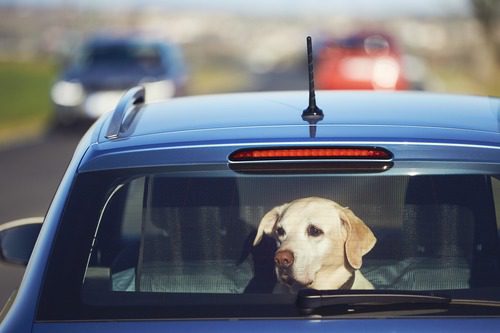Dachshund Back Problems: Tips for Supporting Your Wiener Dog’s Spine Health
Dachshund Back Problems: Tips for Supporting Your Wiener Dog’s Spine Health
Dachshunds, with their distinctive long bodies and short legs, are beloved for their unique appearance and lively personality. However, this same charming physique puts them at a higher risk for spinal issues, commonly referred to as dachshund back problems. Understanding these risks and knowing how to support your dog’s spine health can make a significant difference in their quality of life. In this blog, we’ll explore why dachshund back problems occur and provide practical tips to help prevent them. If you have concerns about your pet’s spinal health, reach out to Embassy Lakes Animal Hospital at (954) 432-5811 for professional advice.

Understanding Dachshund Spinal Issues
Dachshunds are prone to a condition called Intervertebral Disc Disease (IVDD), where the discs that cushion the bones of the spine either bulge or burst. This can lead to pain, nerve damage, and even paralysis. The structure of a dachshund’s spine makes them particularly susceptible to this condition.
The Role of Genetics in Spinal Problems
Genetics play a crucial role in the prevalence of IVDD among dachshunds. Their long spine and short rib cage do not provide adequate support for their back, which can lead to increased stress on their intervertebral discs. Regular veterinary check-ups are vital to monitor any genetic predispositions and catch signs of disc wear or damage early.
Preventive Measures to Protect Your Dachshund’s Back
Preventing dachshund back problems begins with proper care and routine practices that support spine health. Here are some key strategies to help protect your dachshund’s back:
- Optimal Weight Management: Keeping your dachshund at a healthy weight is crucial. Excess weight puts additional stress on their spine, exacerbating the risk of IVDD. A balanced diet and regular exercise are key factors in maintaining an optimal weight.
- Appropriate Exercise: While exercise is important, it’s equally critical to choose activities that do not strain their back. Avoid high-impact exercises like jumping or running on hard surfaces. Instead, opt for gentle walks and swimming, which can strengthen muscles without putting pressure on the spine.
- Safe Handling and Support: When picking up a dachshund, always support both their chest and hindquarters to avoid putting stress on their spine. Teach children and other family members the correct way to handle your pet to prevent accidental injuries.
Clinical Signs and When to Seek Help
Recognizing the early signs of back problems can lead to quicker intervention, which might improve the outcome for your pet. Watch for signs such as:
- Reluctance to jump or climb stairs
- Obvious pain or discomfort
- Changes in gait
- Loss of bladder or bowel control
These symptoms warrant an immediate call to your veterinarian.
Long-term Management and Care
For dachshunds diagnosed with IVDD or other spinal conditions, ongoing management is essential to maintain quality of life.
Regular Veterinary Visits
Regular check-ups can help monitor the condition of your dachshund’s spine and any progression of disease. Your vet can also adjust treatment plans as needed based on your dog’s current health.
Therapeutic Options
Various treatments, including medications, physical therapy, and in some cases, surgery, can help manage symptoms and improve mobility. Discuss these options with your vet to determine what’s best for your dachshund’s specific needs.
Supporting Your Dachshund’s Spinal Health
Dachshund back problems can be a challenging aspect of owning this breed, but with the right knowledge and resources, you can significantly improve your dog’s spine health. Remember, prevention is key. Keep your dachshund active, maintain a healthy weight, and use safe handling techniques to help minimize their risk of spinal issues. For personalized advice and professional care, contact Embassy Lakes Animal Hospital at (954) 432-5811. Our dedicated team is here to support you and your pet every step of the way.
Share This Article
Related Articles
About Embassy Lakes Animal Hospital
Located in Cooper City, FL, we strive to do more than simply be a full-service veterinarian for your pet. Our decades of experience has served generations of families and their beloved pets and we look forward to serving you as well!



